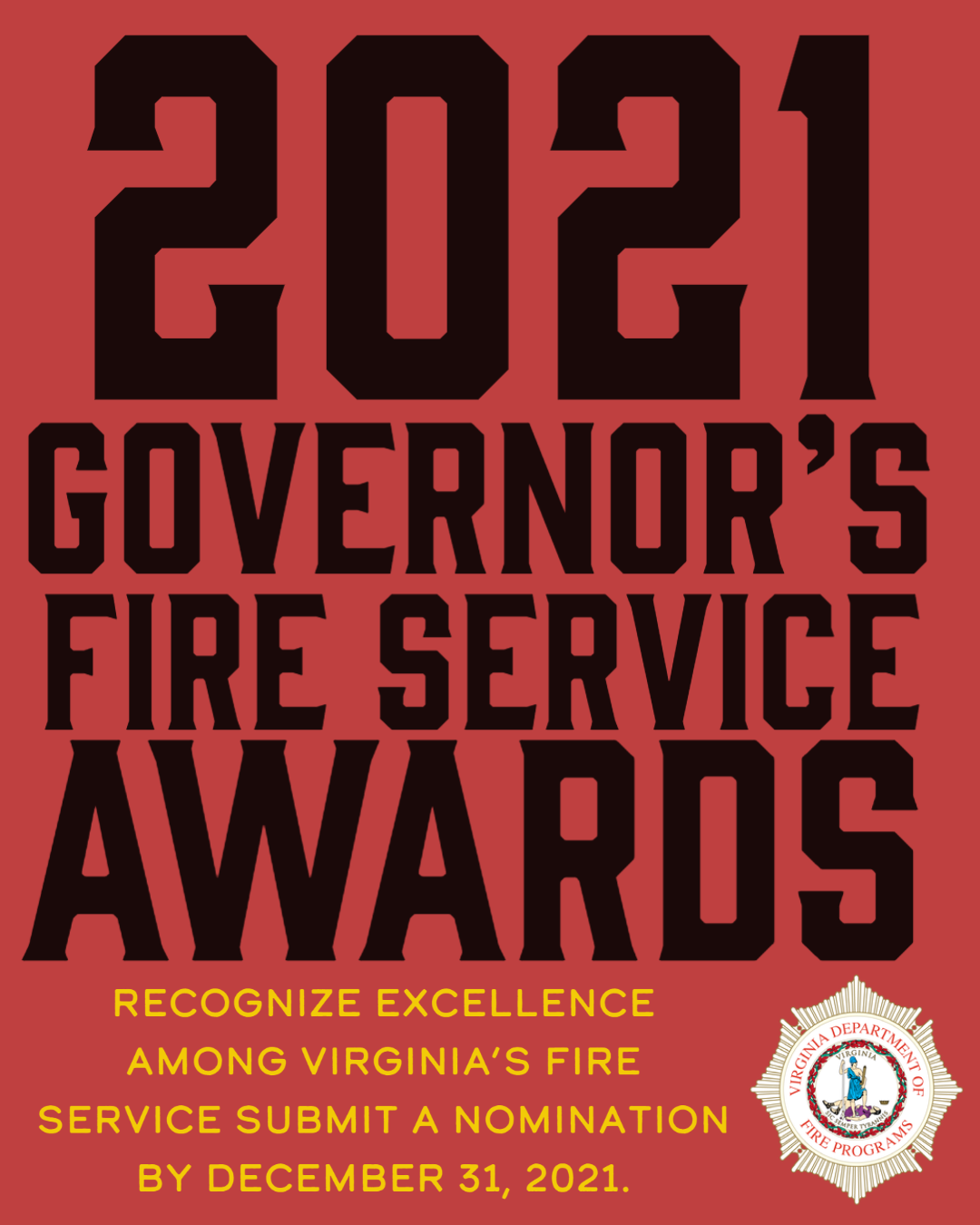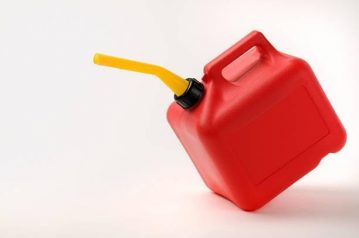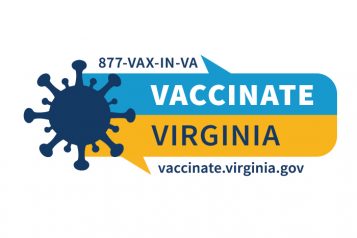2021 Governor’s Fire Service Awards Nominations Now Open
Nominations accepted until December 31, 2021
 RICHMOND – November 3, 2021 – The Virginia Department of Fire Programs, a leader in enhancing public safety, in conjunction with the Virginia Fire Services Board, are seeking nominations for the 2021 Governor’s Fire Service Awards, which honors and recognizes excellence in Fire Services in the Commonwealth. The annual Governor’s Fire Service Awards is presented in eight categories during the Virginia Fire Rescue Conference held in February at the Virginia Beach Convention Center. Nominations can be submitted through an online form on the VDFP website through December 31, 2021.
RICHMOND – November 3, 2021 – The Virginia Department of Fire Programs, a leader in enhancing public safety, in conjunction with the Virginia Fire Services Board, are seeking nominations for the 2021 Governor’s Fire Service Awards, which honors and recognizes excellence in Fire Services in the Commonwealth. The annual Governor’s Fire Service Awards is presented in eight categories during the Virginia Fire Rescue Conference held in February at the Virginia Beach Convention Center. Nominations can be submitted through an online form on the VDFP website through December 31, 2021.
About the Governor’s Fire Service Awards
The Governor’s Fire Service Awards were established in 2002. In partnership with the Virginia Fire Services Board, the VDFP facilitates the awards. The Virginia Secretary of Public Safety and Homeland Security presents the Governor with award recommendations, at which the final recipients are then selected. Award categories:
- Governor’s Award for Excellence in Virginia Fire Service
- Governor’s Award for Excellence in Virginia Community Risk Reduction
- Governor’s Award for Excellence in Virginia’s Fire Service Training
- Governor’s Award for Outstanding Fire Department Response
- Governor’s Award for Private Sector Excellence in Virginia Fire Service Support
- Governor’s Civilian Excellence in Virginia Fire Service Support
- Governor’s Virginia Firefighter of the Year
- Governor’s Virginia Fire Chief of the Year
Among the 2020 recipients were Virginia Beach Fire Department and the City of Staunton Fire and Rescue, who were recognized for Excellence in Virginia Fire Service Training and Outstanding Fire Department Response, respectively. Read more about the 2020 Governor’s Fire Service awards recipients
About the Virginia Department of Fire Programs
The Virginia Department of Fire Programs provides training, support services, and resources to more than 700 fire and emergency service organizations, and approximately 44,000 fire service personnel in the Commonwealth. Support areas include funding, professional development, research, operational support, technical assistance, and fire prevention inspections through its State Fire Marshal’s Office.
 Wise Regional School
Wise Regional School
